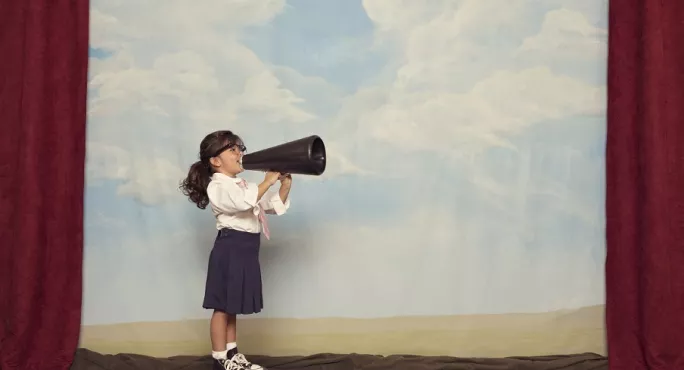- The play is the focus
It sounds obvious, but the first thing you need to do is read the play several times. Get to know the story inside out. In the case of Shakespeare, you will need to make significant cuts to the text unless you want to stage a three-hour epic. A good place to start is by identifying all the scenes and lines that provide vital information about the story or characters; this will give you bare bones that you can build around.
- Design and costume
Illustrations in a book are there to aid the readers’ understanding of the narrative, characters and world of the story. In the same way, all the visual aspects of your production need to support the storytelling. But keep it simple. You don’t need expensive or elaborate costumes when a single well-chosen prop or item of clothing will suffice.
- Make text physical
Try to get actors on their feet as soon as possible and break scenes down into smaller sections or “units” for rehearsals. Students will feel confident sooner when focusing on a small amount of text.
Rehearse in the biggest space you can and give actors different rules to experiment with, like making one character stand still while another can move wherever they want. If a student has few or no lines to say, always make sure they know why they are in the scene and what their attitude to the situation or other people is.
- Sound and motion
If you have musicians in your class or access to the school orchestra, get them involved. Live music can really enhance atmosphere and support the performance. However, you don’t have to be a music expert. Why not try experimenting with soundscapes? For example, there is lots of fun to be had in exploring the sounds of the Forest of Arden or what Caliban means when he says “the isle is full of noises”.
- Breathe
Projecting your voice is not about shouting. Often, it’s simply about having enough breath to get to the end of the sentence without the words trailing away. I find it helps young actors to visualize their voice hitting a target - it could be a chair in the back row or a cloak at the other end of the hall.
- Ownership
By far the best work I have done involving young people has been where they have clearly had ownership of the project and of Shakespeare’s language. The best directors are those who support the actors’ ownership from the very beginning by acknowledging that they do not have all the answers.
It’s important to allow decisions to be made throughout rehearsals. Encourage your students to have ideas. Try all of their ideas out; you’ll soon see which work best. Students need to be allowed to fail. Rehearsing is all about getting it wrong and trying again. Your job as director is to set up an environment in which the actors feel safe to do so.
Robin Belfield is a theater director and writer. He tweets at @BelfieldSlater.
Want to keep up with the latest education news and opinion? Follow TES USA on Twitter and like TES USA on Facebook.
